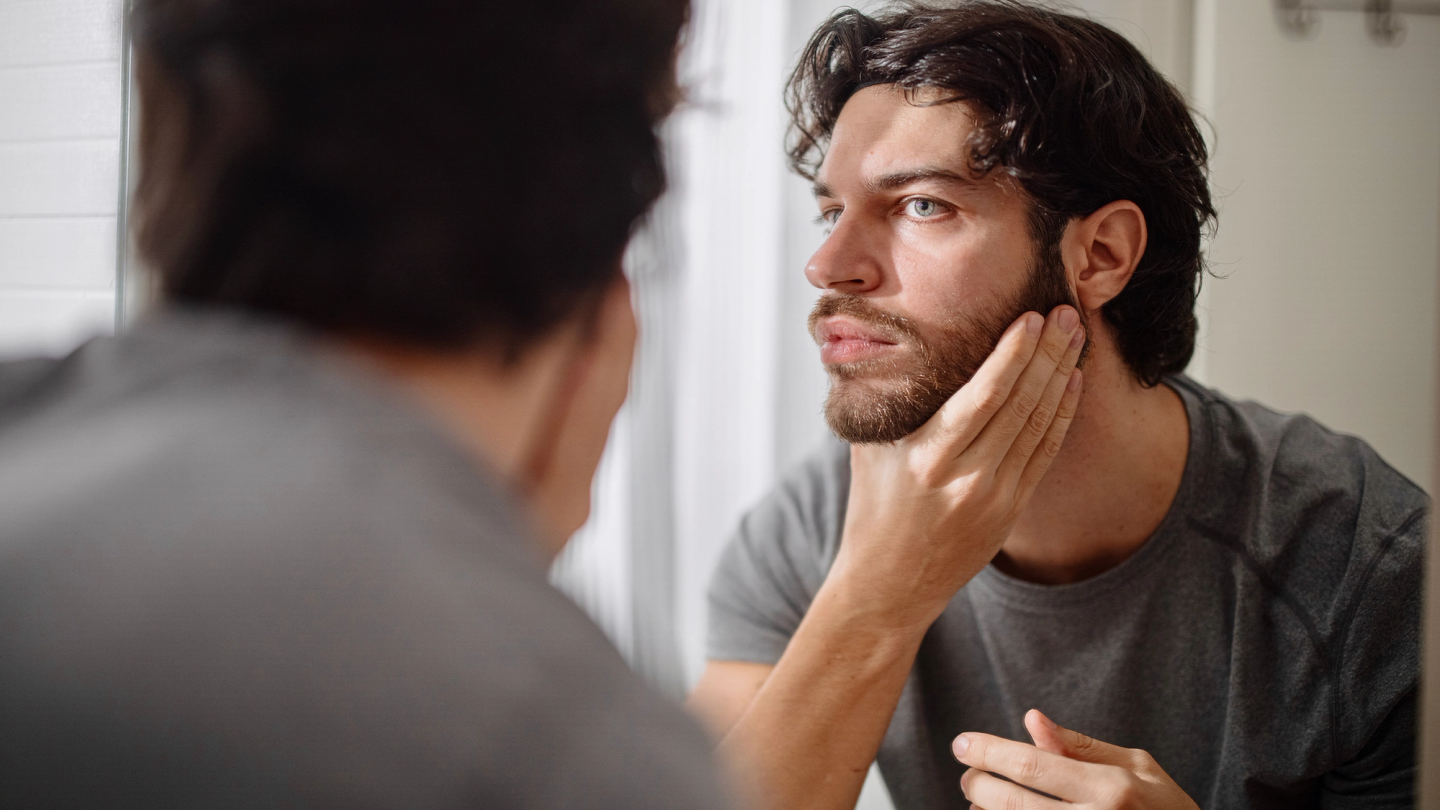

Yep, beard transplants are a thing too
Sick of that patchy beard?
Words: Zak Maoui
In recent years there's been a surge in men getting hair transplants to fix their low follicle count on the top of the head. You probably know someone who, once they turned 30 odd, felt the need to get one. But have you ever heard of someone who has got a beard transplant? Well, that's a thing too.
Well, a beard transplant sort of does the same as a hair transplant, in that it aids in the growth of follicles in an area that is dwindling, or has become patchy. A beard transplant is a surgical procedure that moves hair follicles from the scalp to the beard to create a fuller beard. And guys are getting them more than ever. The Farjo Hair Institute, a world-leading clinic in hair restoration and transplantation, has seen a with a 32 per cent year-on-year increase in procedures, with no sign of this increase slowing down.
But with beard transplants still sitting in a bit of a grey area, as they haven't quite hit the mainstream in the same way hair transplants have, we decided to sit down with Dr Bessam Farjo, Hair Transplant Surgeon at the Farjo Hair Institute on Harley Sreet, to find out what goes into them. See below what he had to say...
When should a man get a beard transplant?
"A man might consider a beard transplant when he is dissatisfied with the density, shape, or overall appearance of his facial hair," Farjo says. "This can be due to genetics, scarring from injury or burns. Some men seek a beard transplant to enhance masculinity, while others may wish to correct patchiness or uneven growth. The right time for a transplant depends on personal readiness, as well as ensuring the hair loss has stabilised if there are underlying conditions. A consultation with a qualified surgeon will determine suitability and help establish realistic expectations."
What are the signs of needing a beard transplant?
"No one needs a beard transplant, but for some, it can be a source of low confidence," Farjo says. "If this is the case, then please get in touch as we might be able to help. Some of the most common reasons men come to use for this include thin or patchy beard growth that doesn’t improve with age, gaps caused by scarring or trauma, or an inability to grow a full beard altogether due to genetics. Some men also desire a fuller or more defined beard style than their natural growth allows."
What goes into a beard transplant?
"A beard transplant involves harvesting hair follicles, typically from the back of the scalp, as these are likely to closely mimic the texture of facial hair," explains Farjo. "These grafts are then carefully implanted into the desired beard area to ensure a natural pattern, natural hair direction, angle and density. The procedure is meticulous, taking several hours, depending on the size of the area to be treated. Full results typically take 6-12 months to manifest, as the transplanted hairs initially shed and then regrow."
Who should avoid having a transplant?
"Men with certain medical conditions, such as uncontrolled diabetes, bleeding disorders, autoimmune disorders such as alopecia areata, or chronic skin diseases, may not be ideal candidates," Farjo advises. "Additionally, those with insufficient donor hair or unrealistic expectations or body dysmorphia should avoid the procedure. Smoking can also hinder healing, so heavy smokers may be advised against it unless they’re willing to quit. Lastly, younger individuals whose hair loss hasn’t stabilised might benefit from waiting until their condition is more predictable."
Can you have a hair and beard transplant?
"Yes, it’s entirely possible to have both procedures, sometimes even at the same time, depending on the availability of donor hair and the size of the areas to be treated," Farjo says. "The same donor area (typically the back and sides of the scalp) is used for both, so careful planning is crucial to ensure there’s enough hair to meet both needs without compromising natural-looking results. An experienced surgeon will assess your goals and determine the feasibility of combining the two."
How much is a beard transplant?
"The cost of a beard transplant in the UK will vary greatly, but typically ranges from £5,000 to £7,000, depending on the extent of the area treated and the number of grafts required," says Farjo. "Prices vary with clinic expertise, location and whether additional services are included. It’s essential to choose a surgeon based on their credentials and results, rather than cost alone."
Where should you go?
"Always opt for an experienced surgeon with a reputable clinic specialising in hair restoration," advises Farjo. "Look for doctors who are members of organisations such as the ISHRS (International Society of Hair Restoration Surgery) or the British Association of Hair Restoration Surgery (BAHRS) and facilities registered with the CQC (Care Quality Commission). Additionally, dedicated hair surgeons, should be certified by the American/International Board of Hair Restoration Surgery (ABHRS). Visiting a clinic with a proven track record, positive patient reviews, and before-and-after photos can help you feel confident in your choice."
What should you avoid?
"Avoid clinics at home or abroad that promise suspiciously low prices, special offers, rush consultations, or who lack transparent credentials. Steer clear of unlicensed practitioners or those without proper facilities, as this can lead to poor results or complications. Post-procedure, it’s crucial to follow aftercare instructions, including avoiding smoking, immediate excessive sun exposure, or picking at scabs, as these can impact the success of your transplant."
Want to look your best? Check out the best grooming releases of the week
Become a Gentleman’s Journal member. Find out more here.


